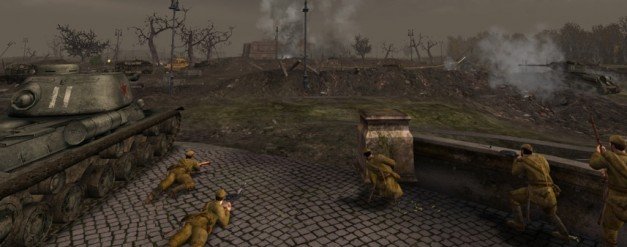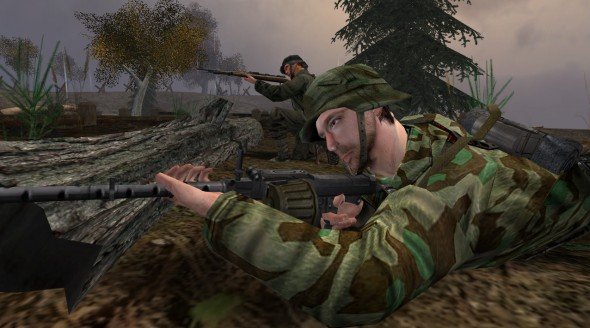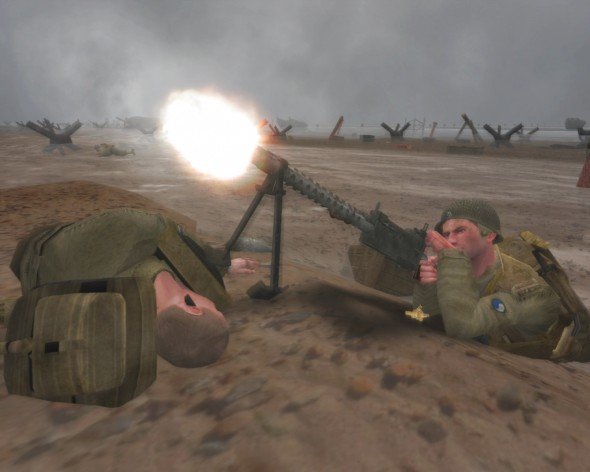5 lessons mod teams should learn from Red Orchestra

Red Orchestra, made by the team which became Tripwire Interactive, is one of the most successful mods of all time. As of two years ago, the commercial adaptation had sold over 400,000 copies, spurred on by Steam's support and by the Make Something Unreal contest. You can read more about the game's development in a feature called Modded Warfare in the latest issue of PC Gamer UK ; but what lessons can indie developers and modders draw from the team's success?
Modding teams benefit from being BIG
At its height, the Red Orchestra modding team consisted of 60 people. “We had great animators, researchers, programmers, designers... but then every team has guys who only show up in the IRC channel... there were probably 20 full time producers, 20 who would do something cool occasionally, and 10 or 15 who were worthless” says John Gibson, the lead programmer. However, this huge talent base meant that even when, for example, their lead map designer pulled out, taking his maps with him, they had someone else, to hand, who was willing to step up and fill the gap. Not everyone was professional and, as Alan Wilson, the lead historical researcher and now Vice-President at Tripwire says, “1 or 2 were worse than worthless”; but because of this depth, development never stopped.

Don't get complacent or cocky
If everything's going well and the game is getting a good reception - don't be rest on your laurels. Having won all the early rounds of the Make Something Unreal tournament, “we got cocky”, says John “we saw ourselves as the juggernaut that was going to destroy all comers.” As they got complacent, the other mods started to catch up, and a few, like the mod that later became the game Damnation, became real challengers. “There was this moment where I thought we were going to lose” says John, “so I got everyone to make a list of the top ten things that another mod will have that could cause us to lose. I then took this top ten things of the hundred I got and said 'We're going to be this mod; we're going to make these ten things and put them in our game. And we did.”
ALWAYS stay friendly with Valve
Before Steam came along, dealing with mainstream publishers was a nightmare; ““they'd offer crap deals, terrible percentages, and remove anything unique whilst taking the intellectual property for themselves.” The Tripwire boys, fresh from winning Make Something Unreal, couldn't find a contract they would sign. Then they saw Valve's new Steam platform. John contacted Doug Lombardi (Valve's marketing and PR director) and he responded; he knew about Red Orchestra and wanted to talk, giving them a very good deal. That was the turning point. Red Orchestra was the second or third non-Valve game on Steam. Since then, Tripwire have continued to work with Valve and say “We'll always be Steam fanboys. ” The friendliness, the help and the amazingly reasonable percentages - all mean it pays to stay friendly with Valve.
The biggest gaming news, reviews and hardware deals
Keep up to date with the most important stories and the best deals, as picked by the PC Gamer team.

Keep adding content
If you're going to digitally distribute a game, especially through Steam, you have to keep giving content away for free; it drives long-term sales. “We just got into this role of releasing free content.” says John “We were learning how to make digital distribution work; a lot of people think of it like a Walmart shelf but it's always a work in progress. You've got the opportunity to keep upgrading things.” The repeated sales generated by three years of updates, in which they doubled the in-game content, gave Tripwire the cash to keep going and at the end of 2006 they were able to start work on Red Orchestra 2.
Helping your own games' modding communities is a similarly good way of generating new content; Tripwire helped Alex Quick port his mod Killing Floor to Red Orchestra and got him a full steam release. They have also released other Red Orchestra mods, such as Mare Nostrum, as free Steam add-ons.
A million dollars is never a million dollars.
Always, always read the small print. The Make Something Unreal contest was an advertised as having a “million dollar prize” - but this prize fund was in fact for the whole contest and hence was split between several different elements, including the smaller prizes the contest winners had taken, marketing, and so on. As Alan remembers it, “The infamous million dollars. I got hate mail after we won “the million dollars”. We turned around and tried to make a retail game, as the million dollars included engine licenses for unreal 2.5 and 3.0, which are worth a huge amount. When all was said and done, we had about $30,000 and some engine licenses.”

